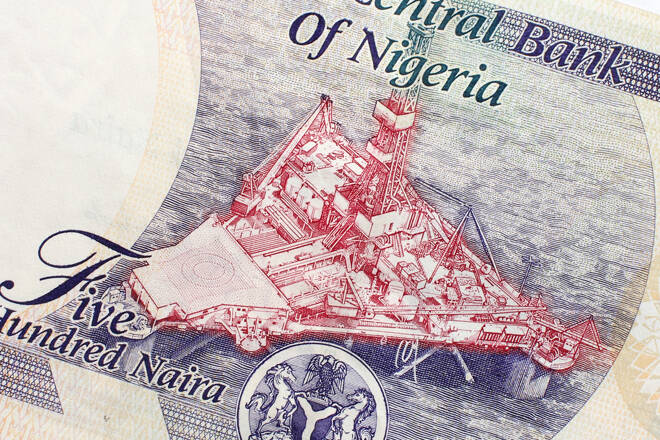Advertisement
Advertisement
Central Bank Digital Currency Gains Traction In Nigeria
By:
The adoption of the CBDC will improve Nigeria's economic activities and increase its GDP by $29 billion within a decade.
Nigeria’s central bank introduced a digital currency in a move to dissuade people from crypto three weeks ago, attracting about half a million users.
eNaira, the digital currency issued by the Central Bank of Nigeria, has a high adoption rate, according to Osita Nwanisobi, spokesman for the Abuja-based lender. About 78,000 merchants from more than 160 countries have enrolled, Nwanisobi told me by phone. Consumers have downloaded the consumer wallet, which is required to transact eNaira.
Since its introduction, Nwanisobi estimates that the virtual currency has been traded for about 62 million naira ($155,000).
Earlier this month, President Buhari unveiled the eNaira at the State House. His speech highlighted the benefits of increased remittances, cross-border trade, improved financial inclusion, and streamlined welfare payments for the government.
As a result, the adoption of the central bank’s digital currency will also improve Nigeria’s economic activities and increase its GDP by $29 billion within a decade.
Announcing the eNaira, the Central Bank of Nigeria’s digital currency, he concluded, “I am delighted.” Introducing a digital currency makes Nigeria one of the first countries in Africa and the world to do so.”
Many are surprised by the CBN’s launch since, like other central banks, the CBN has been suspicious of crypto assets, such as Bitcoin, since they were created.
Recently, the CBN banned banks from participating in financial transactions involving cryptocurrencies, in which many Nigerians have invested to hedge against the depreciation of the naira.
However, Nigerians have continued to use virtual currencies as a hedge against the nation’s capital controls and as a means of remitting money regardless of the central bank’s opposition.
A Statista survey found that individuals in the country hold the highest percentage of these assets per capita in the world.
Retail users who conduct Crypto transactions under $10,000 are the highest in this region as well, according to Chainalysis.
About the Author
Olumide Adesinaauthor
Olumide Adesina is a France-born Nigerian. He is a Certified Investment Trader, with more than 15 years of working expertise in Investment trading. He is a Member of the Chartered Financial Analyst Society.
Advertisement
